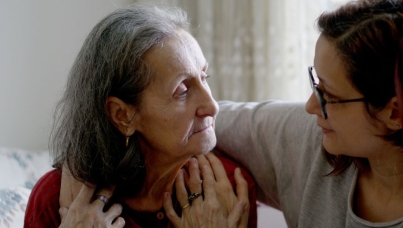Life Or Death Dilemma For Parents
An amazing 30% of adults in Britain say they would consider an abortion if they discovered their unborn baby was affected by a serious inherited disease, according to a recent MORI poll commissioned by Action Research, one of the UK's leading medical research charities.
The poll also found that one in five adults say they would not every try for children if they knew there was a chance to passing a serious inherited disease to their child.
The survey coincides with the launch of Paddington's Suitcase Challenge - the charity's national campaign to help Paddington Bear raise 1631 million for research into children's diseases.
Members of the public were asked to consider what they would do if they know that through having a child, a serious inherited disease like muscular dystrophy or cystic fibrosis could be passed on to their baby.
- 21% said they would not even try for children in these circumstances.
- 30% said they would still try for children but would be likely to request an abortion if their unborn baby were found to be affected with a serious inherited disease.
- In all, 52% of the public said they would try for a baby. Only 13% said they were unlikely to have a termination if their baby were found to be affected.
- 9% said they would try for children but not request a test.
Commenting on the survey, Action Research's Communications Director, John Grounds said: "Every year, this agonising choice is faced by thousands of parents who know there is a chance of passing on a disease to their children. If they decided to take the risk, and the baby is found to be carrying the disease, they much then decide whether to continue or terminate the pregnancy."
He added: "Whilst we do not yet have all the answers, we already know that certain complications can be identified and treated at different stages of pregnancy and birth. Further medical research to diagnose and understand other conditions will bring such solutions even closer. Traumatic decisions about whether or not to embark upon or continue with a pregnancy may then become less frequent for many potential parents".
Action Research funded the initial studies which suggested that by taking folic acid supplements before and during the first 12 weeks of pregnancy, women can substantially reduce the risk of their unborn child having spina bifida.
A new study funded by Action Research which may go on to benefit mothers and their unborn child is looking into obstetric cholestasis.
This is a disease of pregnancy which can cause fetal distress, prematurity and even stillbirth. The reasons for this are unknown but they may be due to raised bile acid levels, which are found in affected mothers and their babies.
A team of researchers in the UK will investigate treatment and look at the way the placenta transports bile acids to see if this is abnormal in this condition.
Other research projects funded by the charity include novel therapy for Duchenne Muscular Dystrophy which may lead to new or better treatments after babies are born.
A further project focuses on a group of rare metabolic diseases (glycosphingolipidoses) including Tay-Sachs, Gaucher's, Fabry and Sandhoff's diseases, all of which are largely untreatable at present. Action Research doctors are assessing feasibility of a new drug which could be given to children from birth.
Q It is possible for some serious inherited diseases - for example spina bifida, cystic fibrosis and muscular dystrophy - to be passed from a parent to their unborn child. Some of these diseases can now be detected during pregnancy, and parents told whether or not the disease has been passed on to their child. If the baby is found to be infected with a serious disease, parents may be asked whether or not they would like to have the pregnancy terminated.
Which, if any, of these do you think would best apply to you if you knew that through having a child, a serious inherited disease could be passed from yourself or your spouse/ partner to that child? Obviously, this is the sort of thing that most people would discuss with their spouse or partner, but we are interested in your view.
| % | |
| I would not want us to try for children | 21 |
| I would want us to try for children and would not request that my baby be tested during pregnancy for any possible signs of the disease | 9 |
| I would want us to try for children, and have my baby tested during pregnancy;if the baby was found to be infected with a serious disease ... | |
| It is very likely that I/we would request to have the pregnancy terminated | 16 |
| It is fairly likely that I/we would request to have the pregnancy terminated | 14 |
| It is not very likely that I/we would request to have the pregnancy terminated | 7 |
| It is not at all likely that I/we would request to have the pregnancy terminated | 6 |
| Cannot say - would need to discuss with my partner | 3 |
| Not applicable - don't have a partner | 3 |
| Not applicable - don't want (any more) children | 10 |
| It would depend on the disease in question | 2 |
| Other | 1 |
| Refused | 1 |
| Don't know | 6 |
Technical details
MORI interviewed a representative quota sample of 1,978 (male and female) adults aged 15+ between 5-9 February 1999. All interviews were face-to-face and in-home, and were conducted across 164 sampling points throughout Great Britain.



